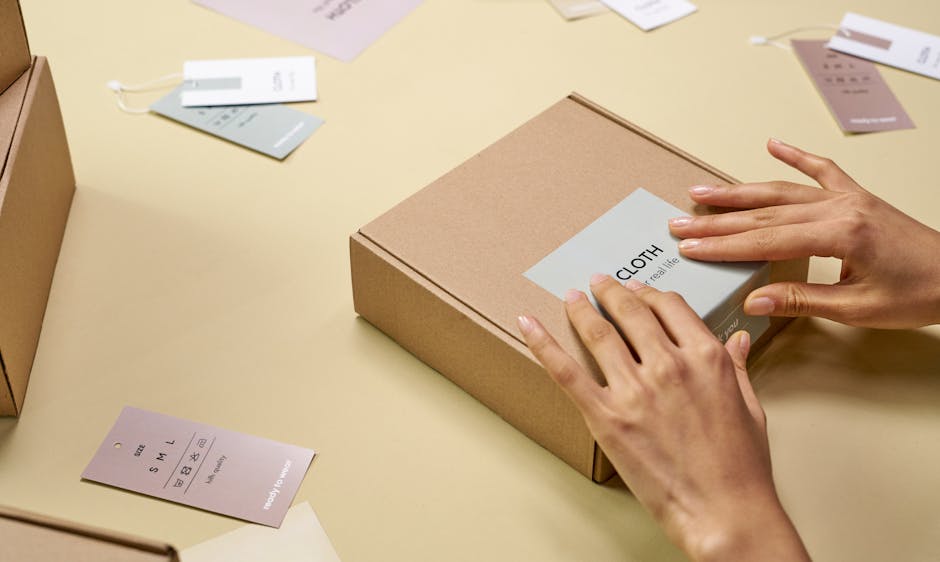Partnering with Brands to Monetize Your Recipes

If you’re passionate about cooking and have a collection of mouth-watering recipes, you’ve probably wondered how to turn that hobby into an income stream. One excellent way to do this is by partnering with brands to monetize your recipes. It’s not just about having delicious dishes; it’s about aligning your content with the right companies and products to create a mutually beneficial relationship.
Let’s walk through the different aspects of building partnerships with brands, so you can start getting paid for what you love doing – sharing great food ideas.
Understanding Brand Partnerships
Brand partnerships are essentially collaborations between you (the content creator) and companies (the brands) that sell products or services that align with your audience. This could range from pantry staples like flour or olive oil to kitchen gadgets and cookware. Brands are always on the lookout for creative ways to market their products, and your recipes could be the perfect vehicle.
Think of it like this: when people visit your blog, Instagram, or YouTube channel, they aren’t just looking for instructions on how to make a dish. They’re seeking recommendations for ingredients and tools that will help them recreate your magic in their own kitchens. You already have an audience that trusts your culinary advice, so why not use that influence to partner with brands that fit naturally into your content?
Where Do You Start?
The first step is identifying the types of brands that align with your recipes and target audience. Are you focused on healthy meals? Organic food brands might be a good match. Does your content lean toward indulgent desserts? Then premium chocolate or baking tool companies might be more suitable.
- Know Your Audience: Think about the demographics of your audience. Do they prefer budget-friendly ingredients? Are they environmentally conscious? The more specific you can be about who’s consuming your content, the better you’ll be able to choose brands that resonate with them.
- Find Your Niche: If you specialize in gluten-free baking, it makes sense to partner with gluten-free product lines. The same goes for vegan recipes or even cuisines like Italian or Thai. Narrowing down your niche can actually give you a stronger appeal because brands are always looking for creators with focused audiences.
- Research Brands: Start looking at brands that sponsor other food creators within your niche. Look at Instagram influencers or bloggers in a similar space and see which companies they’re working with. It’s helpful to know what’s already working in your industry.
This legwork will allow you to approach companies confidently because you'll know exactly why their product would benefit from being featured in your content.
Crafting the Perfect Pitch
Once you've identified potential brand partners, it's time to reach out! Crafting a compelling pitch is crucial here, as it's the first impression you'll make on a potential sponsor.
- Be Personal: Don’t send out cookie-cutter emails. Research the company, find out who’s responsible for influencer marketing, and address them by name. Mention specific products of theirs that you've used or loved in the past – authenticity goes a long way!
- Highlight Mutual Benefits: Explain how partnering with you will benefit them as much as it benefits you. Focus on how you can help them reach new customers through creative and relatable content. For example: "I noticed you're launching a new line of non-stick pans – I’d love to create a series of recipe videos featuring them."
- Provide Data: If possible, share some numbers – traffic to your blog, engagement rates on Instagram posts, or YouTube views can give brands an idea of what kind of visibility they’ll get by working with you. Don’t worry if these numbers aren’t massive; smaller, more engaged audiences are often better than huge but passive followings.
Remember, many brands work with micro-influencers (accounts with 10k-50k followers) because they often have higher engagement rates than accounts with millions of followers.
The Different Ways Brands Can Work With You
The beauty of working with brands is that there are several ways to collaborate based on what fits both parties’ goals. Here are some common types of partnerships:
- Sponsorships: This is where a brand pays you to feature their product in your recipe content – whether through blog posts, social media shoutouts, or videos. For example, let’s say you're creating a salad recipe; the sponsor might be a company that produces salad dressings or olive oils.
- Affiliate Marketing: With affiliate marketing, you earn commissions whenever someone buys a product using your unique referral link. If you're regularly using certain products (e.g., kitchen gadgets), consider signing up for affiliate programs so that every time someone purchases based on your recommendation, you earn a percentage of the sale.
- Product Reviews & Giveaways: In exchange for free products (and sometimes compensation), brands may ask you to review their product honestly or host giveaways where one of your followers wins the item. This creates excitement around both your platform and the brand while engaging your audience directly.
The key is finding what works best for both parties. Some partnerships may involve long-term collaborations where you're continuously creating new recipes featuring their products over months or even years. Others might be one-time projects focusing on seasonal launches or new product lines.
Avoid Common Pitfalls
While partnering with brands is exciting, it’s essential not to compromise your authenticity just to land deals. Your audience follows you because they trust your opinion, so always ensure you're promoting products that genuinely align with your values and style.
- Avoid Overselling: Constantly promoting different products can dilute your brand and make followers feel like they’re being sold to rather than inspired by creative recipes. Balance sponsored posts with organic content that's just as valuable without any commercial interest.
- Be Transparent: Always disclose when a post is sponsored or includes affiliate links – it's both legally required and maintains trust between you and your followers.
- Selective Partnership Choices: Don’t feel pressured to accept every offer that comes along. Focus on quality over quantity when choosing brand partners – long-term relationships tend to pay off more than quick money grabs!
The Power of Patience
If there's one thing successful recipe creators will tell you, it’s this: patience pays off in this game! Building relationships with brands takes time. Don't get discouraged if it doesn't happen overnight – keep putting out high-quality content consistently, stay true to yourself, and opportunities will come knocking sooner than later!
The takeaway here? When done right, partnering with brands can provide an excellent avenue for turning your recipe-sharing passion into a profitable venture while maintaining authenticity and continuing doing what you love most – cooking!
